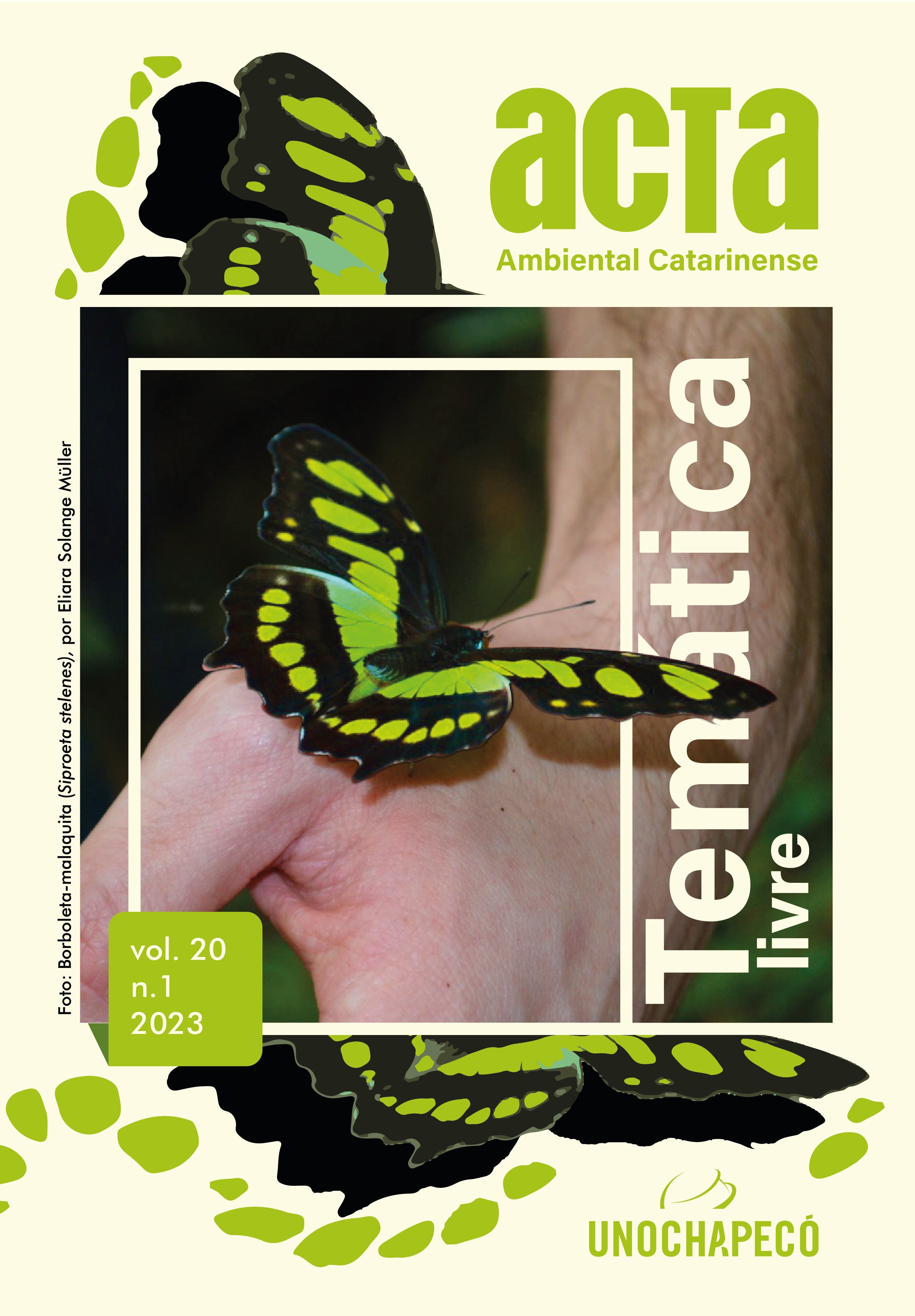ANÁLISE DO COMPORTAMENTO DE Eisenia andrei COMO INDICADORA DA QUALIDADE DE SOLOS ADUBADOS COM DIFERENTES DOSES DE DEJETOS LÍQUIDOS DE SUÍNOS
DOI:
https://doi.org/10.24021/raac.v20i1.7154Keywords:
Earthworms. Swine effluents. Biofertilizers.Abstract
The liquid swine manure (LSW) is used as a source of fertilizer for the soil and in many cases the dosages exceed the maximum recommendation of 50 m³ ha-1. In this sense, the objective was to analyze the behavior of Eisenia andrei earthworms as indicators of the quality of soils fertilized with different doses of LSW. Therefore, the soil and LSW samples used in the experiment were characterized and eight doses of LSW in soil were evaluated, equivalent to: 25, 50, 75, 100, 125, 150, 175 200 m³ ha-1. The leak test followed the ISO 17512-1/2011 standard. As a result, there was a high concentration of organic matter in the native bush soil, as well as a high concentration of organic matter and nutrients in the LSW. Through the earthworm behavior test, the preference of individuals for environments with LSW application was observed, except for the dosage of 175 m³ ha-1, which presented a lower percentage (43%) of earthworms in the test soil. It was also found that at doses above 125 m³ ha-1, there was a reduction in the number of earthworms with preference for soils with LSW, suggesting the presence of chemical substances likely to cause adverse effects to the test organisms and, thus, interfering with their habitat function.
Downloads
Downloads
Published
Issue
Section
License
Copyright (c) 2023 Revista Acta Ambiental Catarinense

This work is licensed under a Creative Commons Attribution-NonCommercial-NoDerivatives 4.0 International License.
Estou ciente de que, em sendo aprovado, a publicação do artigo será no formato on-line no Portal de Periódicos da Unochapecó.Também tenho ciência de que há autorização para assumir contratos adicionais separadamente, para distribuição não-exclusiva da versão do trabalho publicada nesta revista (ex.: publicar em repositório institucional ou como capítulo de livro), com reconhecimento de autoria e publicação inicial nesta revista.
















